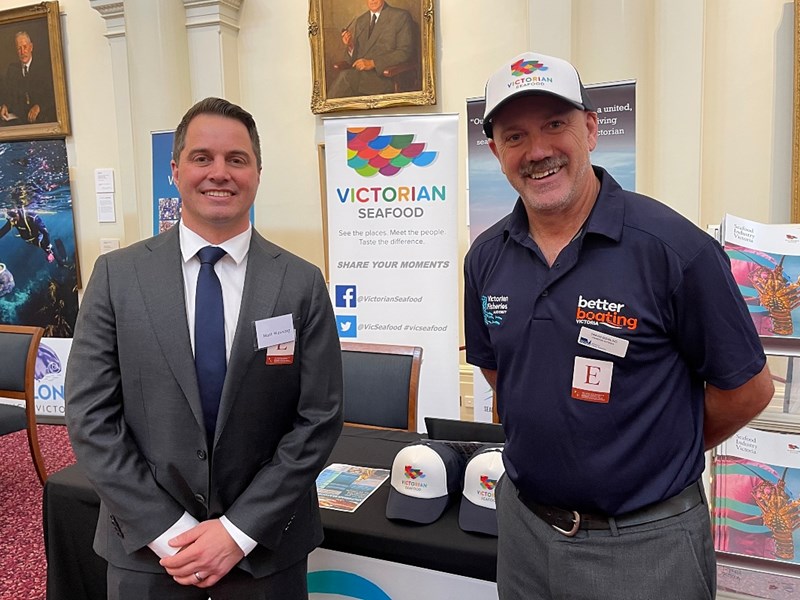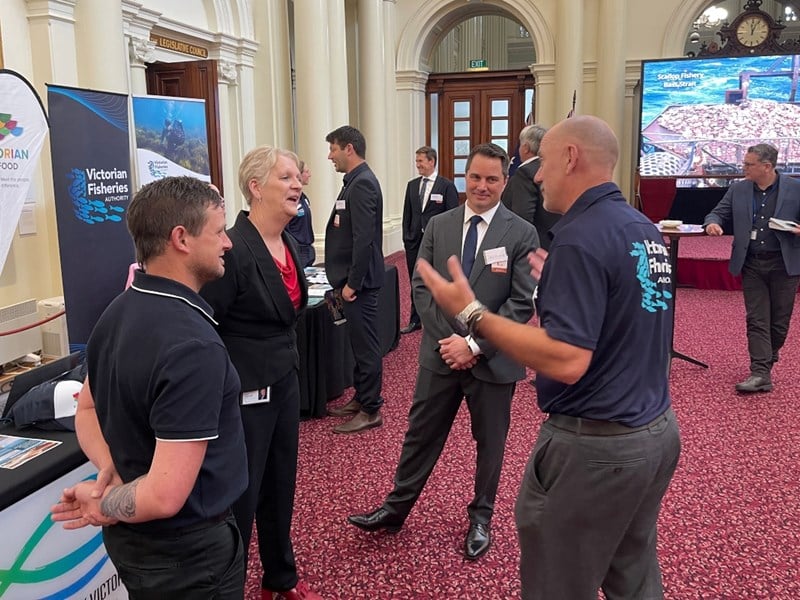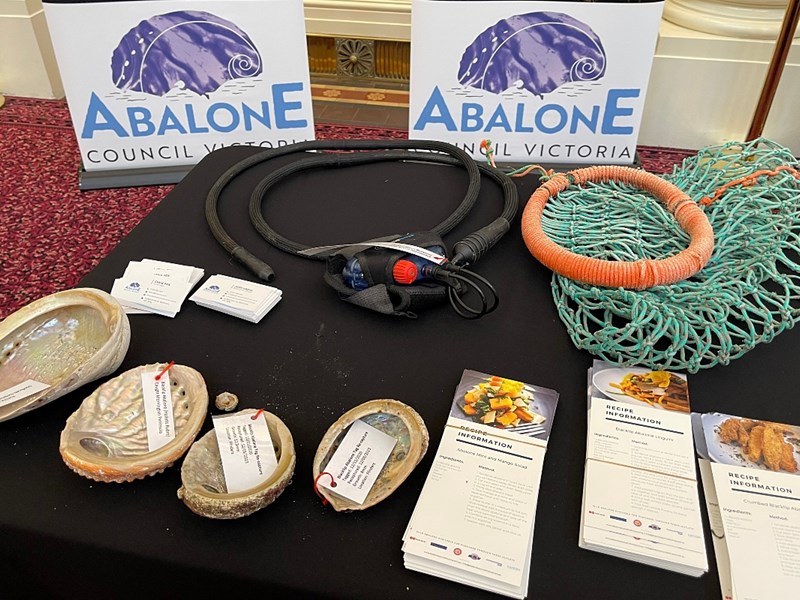Fresh, local and low carbon: boom times for seafood
16 November 2023

Barramundi may be known as a fish that prefers the tropical waters of northern Australia, but some of the best ‘barra’ in Australia is grown right here in Victoria as part of the booming local aquaculture industry.
The fish is farmed in Werribee using an ancient warm-water aquifer.
‘We draw on a pristine water resource, so it's 2000 years old, it's 300 metres deep and it's geothermal. So we pump up this pristine water, that is untarnished by the industrial revolution,’ said Boris Musa, Managing Director and Chief Executive Officer, Mainstream Aquaculture.
‘Our barramundi has basically no carbon miles, a short supply chain and premium freshness. We can harvest in the morning and you could be dining around the corner that evening on a fresh barramundi dinner. That's almost unrivaled in in any other protein production sector.’
Mainstream Aquaculture was among a range of exhibitors in the spotlight at a display from the seafood industry held at Parliament House this week.
“ We're starting to go through the roof in terms of clean, green, available fresh seafood. ”
Travis Dowling, CEO of the Victorian Fisheries Authority
Aquaculture is one part of the industry that is booming in Victoria right now, according to Travis Dowling, CEO of the Victorian Fisheries Authority.
‘About three years ago aquaculture value outstripped wild catch in Victoria for the first time. Victoria now has the largest aquaculture investment moving forward out of any state in Australia. So we're starting to go through the roof in terms of clean, green, available fresh seafood,’ he said.
Along with the long-established wild caught fisheries, the Victorian seafood industry is worth around $100 million per year in direct turnover.

Regulated catch limits are helping keep the industry sustainable, while marketing direct to seafood retailers has helped the industry maintain and improve its profitability.
‘Some of our fishers here today from Corner Inlet, they're catching a third of the amount of King George whiting they used to catch but they're making twice as much money. So from a sustainability point of view, it’s leaving more fish in the water,’ Mr Dowling said.
'We've got a really well-managed resource,’ added Matt Wassnig, CEO of Seafood Industry Victoria.
'There’s a global focus at the moment on low carbon footprint protein, which seafood is. So we need to be making the most of that resource in a sustainable, responsible way,’ he said.

He said consumers should keep an eye out for locally produced King George whiting, octopus, southern rock lobster, abalone, pipies and calamari to sample the best of Victorian seafood.
'We just want to make sure that Victorians have access to locally, sustainably produced seafood. We feel as though they deserve that and we've got terrific assets around our state to be able to make that happen.'